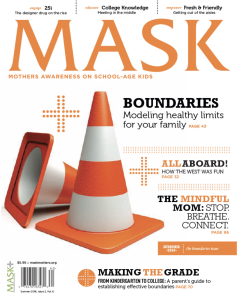
Signs that your Preschooler Is Struggling with Boundaries
February 9, 2024
Building Self-Esteem in Young Children
February 14, 2024Identifying warning signs of unhealthy teen relationships is crucial to ensuring the well-being of young individuals. Here are some red flags that may indicate an unhealthy relationship:
- Isolation from friends and family: If a teenager becomes increasingly isolated from their usual social circle or is discouraged from spending time with friends and family, it may indicate a controlling or manipulative relationship.
- Extreme jealousy or possessiveness: A healthy relationship involves trust and respect for each other’s independence. If one partner exhibits excessive jealousy, tries to control the other’s activities, or constantly accuses them of infidelity without evidence, it’s a warning sign.
- Verbal or physical abuse: Any form of verbal or physical abuse is a clear sign of an unhealthy relationship. This includes name-calling, insults, threats, or physical violence.
- Constant criticism: A partner constantly criticizing or demeaning the other can be a sign of emotional abuse. This may involve making derogatory comments about appearance, abilities, or personal choices.
- Unhealthy communication patterns: Poor communication, such as an inability to express feelings or resolve conflicts, can lead to frustration and tension in a relationship. Effective communication is essential for the health of any relationship.
- Pressure or coercion: If one partner uses pressure, manipulation, or coercion to make the other do things they are not comfortable with, it is a warning sign. This can include pressuring someone into sexual activities or making them engage in risky behaviors.
- Lack of respect for boundaries: Healthy relationships involve respecting each other’s boundaries. If one partner consistently ignores or disrespects the other’s boundaries, it can lead to an unhealthy dynamic.
- Dramatic mood swings or emotional instability: Rapid and extreme mood changes in a partner may indicate underlying emotional issues or instability that can negatively impact the relationship.
- Excessive dependence: While it’s natural for partners to rely on each other for support, excessive dependence can lead to an unhealthy dynamic. Each partner should maintain a sense of individual identity and independence.
- Changes in academic or social performance: If a teenager’s academic performance or social life suddenly deteriorates, it could be a sign of emotional distress caused by an unhealthy relationship.
It’s essential for parents, teachers, and friends to be aware of these warning signs and provide support to teenagers in navigating healthy relationships. Encouraging open communication and fostering a supportive environment can empower teenagers to seek help if they find themselves in an unhealthy relationship.
Grab the Boundaries Issue of MASK The Magazine and learn how to help your child navigate the waves.
MASK The Magazine is the parenting manual offering solutions to the modern-day challenges families face. Each quarterly issue of the award-winning MASK The Magazine tackles a specific topic in-depth and examines how it can affect kids from Pre-kindergarten to College.
MASK the Magazine content is evergreen as it is written based on the “core” topics and strategies. Ships only in the United States.
To learn more about MASK The Magazine



